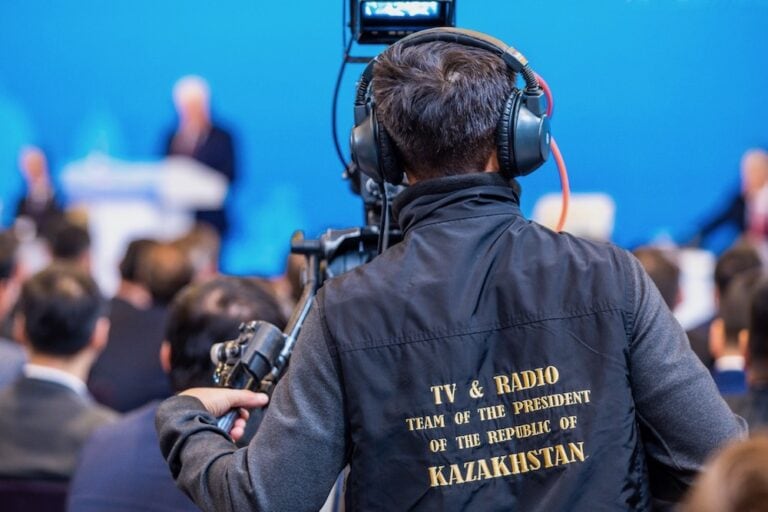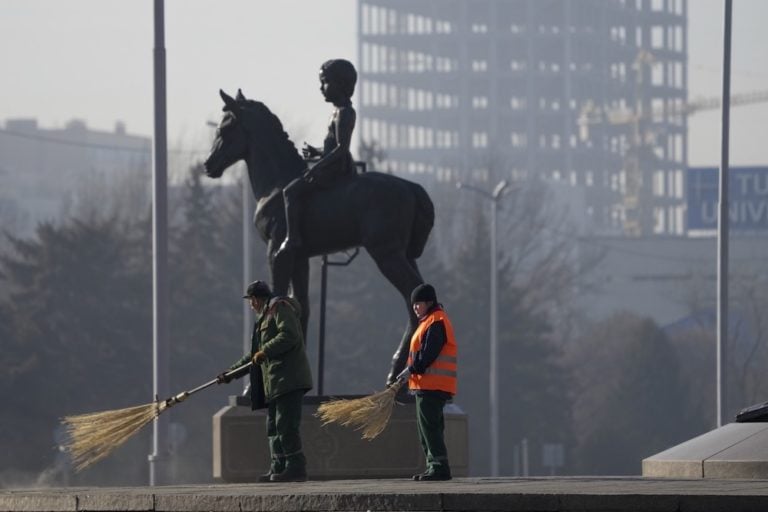ARTICLE 19 calls on the government to ensure the draft code meets international freedom of expression standards.
(ARTICLE 19/IFEX) – 20 May 2010 – ARTICLE 19’s analysis of the Draft Code on Administrative Offences highlights the restrictive mass media regime in Kazakhstan and ARTICLE 19 calls on the Government to ensure the Draft Code meets international freedom of expression standards.
Currently pending before parliament, the government’s Draft Code sets out the sanctions for violating the media regulatory framework established by the 1999 Mass Media Law, which earlier created a restrictive and state control-oriented regime for the media. ARTICLE 19’s analysis points out that the Draft Code will further deteriorate this situation.
ARTICLE 19’s main concerns relate to the administrative responsibilities for:
– Failures of publishers of periodic mass media to register with a state agency
– Media speculations about the outcome of trials
– Passing on false reports and materials to the media
– Violations of the rules concerning re-broadcasting of foreign programmes and broadcasting in non-State languages; and of the obligation to deposit mandatory copies of publications.
Furthermore ARTICLE 19 is concerned at the vagueness of some restrictions concerning the content of publications, and the absence of a requirement that all restrictions should be necessary and applied in the least restrictive manner in order to protect freedom of expression. In violation of international law, the Draft Code provides for very restrictive sanctions including administrative arrest, and huge fines to be imposed together with confiscation of publications and suspension and termination of broadcasting services.
“We call on Kazakhstani MPs to ensure that media-related provisions in the Draft Code are in line with international law and the commitments to free expression made by Kazakhstan, before taking over the OSCE chairmanship,” says Dr Agnes Callamard, ARTICLE 19 Executive Director.


